In its annual review, LSBU says that the number of engineering students it is taking in is growing. This has a lot to do with the way the university is joining up with industry and professional bodies. A further pull for undergraduates is recently formed Faculty of Engineering, Science and the Built Environment. Further plans are afoot to expand existing links with colleges of further education to develop associated vocational skills that are urgently required by UK industry and a profession that is seen worldwide.
London South Bank University has been encouraged by the expanding numbers on its common engineering foundation year. The university aims to increase the efficiency of its programmes by developing an integrated engineering module with a common first-term semester. A foundation degree will feature as part of the offer, with opportunities for students to specialise in associated fields, for example energy engineering and climatic adaptive architecture.
The idea that universities can link with industry to mutual benefit is an increasingly important one. This is particularly true in 'new' industries such as renewable energies.
Dr Mike Duke and Dr Loey Salam, of the solar team at LSBU were the originators of the solar-powered race car MAD DOG 1. Built on a shoestring in 1997 for £20 000 they took on world challengers such as Honda who spent £ 4million, racing across the expanse of the Australian desert. As a result of this kind of research, Duke and Salam have created a South Bank University spin-off company, Solion . The company specialises in solar products and services and is exporting a high-tech Li-ion battery system as well as developing a unique solar lighting product for the parks of Dubai. A new race car has been developed with the German Bochum Fachhochschule that could lead to a new electric vehicle powered from a static charge station. With the help of a £55 000 DTI grant, Solion is to grace the university's Borough Road premises with a 10·8 kW solar roof installation. Such an outward manifestation illustrates that what happens in the classroom can have a dramatic impact on industry technology. The government's White Paper, Our energy future-creating a low carbon economy, published in 2003, sought to address the nation's energy needs in the face of climate change. The White Paper underlined this dearth of skilled professions and trades stating that: "Some 19 000 graduates and skilled people will be needed over the next 15 years just to replace retirements and to satisfy demands for environmental restoration."
Leading in renewables
Universities and other learning centers across the nation have taken up the government's challenge to enhance our research and development programmes and importantly to increase vocational training to augment the essential skills of those hands-on people who make all the bright design systems work.
Along with LSBU, the newly named London Metropolitan University and Kingston University have expanded their own specialist environmental and architectural departments with greater integration with the whole range of building physics and engineering technologies which make up building services.
The government's desired push into expanding renewable energy technologies has become the focus of Loughborough University's Centre for Renewable Energy Systems Technology (CREST) to ensure an increase of non-polluting electrical production via wind and solar systems.
Professor David Infield, director of CREST is of the view that: "The new renewable energy technologies pose genuine challenges to building services engineers including the task to integrate such technologies with existing systems and plant. With this in mind my university colleague, Denis Loveday, has commenced a specifically shaped masters degree for building services."
Professor Infield recognises that the newly expanded European Community has a rapidly growing renewable energy industry. With this in mind he has joined his institution with the University of Northumbria to be an integral part of the recently created European Masters degree in Renewable Energy, developed by the Brussels based European Renewable Energy Centre (EUREC).
This one year course is open to students seeking an additional degree, and to people with established expertise in commerce, industry and associated professions. The course has a European dimension with study and project-specific research at the French Ecoles des Mines de Paris in Nice and the Univiersidad de Zagargoza, Spain. It has other specialist teaching modules covering photovoltaics, wind, biomass, solar and hybrid systems at the universities in Lisbon, Athens, Kassel in Germany, as well as Northumbria and Loughborough in England.
The course not only gives students the ability to learn from pan-European sources but also to establish cross border links beyond Europe.
First semester students, American Jennifer Hunt and Nicola Wilkins from the English Midlands found themselves 'parachuted' into, respectively, Gambia and the Fiji Islands. They had to sort out designs for the electrification of a rural health centre, and to find ways to ensure that wind turbines and pv panels can withstand tropical storms.
When the first fifteen students picked up their European degrees in Brussels on the 29 September 2003 they all had unique stories that told of their own personal learning curves and how this comprehensive European and world-wide course was not only of personal benefit for their profession but also for the companies that supported many of them to attend.
The benefits of experience
Not all were so lucky to have company sponsorship. Amongst them was an ex-fisherman and off-shore oil rigger, David Smail, who from night school study, paid his own way to collect his European Masters degree in predicting and developing the methodology to maintain offshore wind turbines in dangerous sea conditions.
Smail brought to the attention of mainly academic students the benefit of hands-on vocational experience. Having been a student of mechanical engineering at Nottingham and Trent technical colleges he developed further essential skills in offshore piping installations and later became a team player with the laying of submarine cables and later to work on off-shore wind turbine installations.
It was in this capacity that he recognised that successful maintenance was a critical element in ensuring the viability to the use of off-shore wind turbine development. With a seaman's knowledge David Smail knew that winds and sea can create treacherous and dangerous conditions.
His degree studies were spent inventing ways to safely maintaining these wind machines to ensure the development of new safety standards and new equipment developments in an expanding industry.
The current intake on the Masters in Renewable Energy consists of thirty students who are interfacing with the different European universities who have all found the many benefits from interacting with students from across Europe.
The course curriculum is to be expanded and building services engineers should also see the benefit of developing such cross-border expertise both for themselves and their companies.
President of EUREC, Professor Didier Meyer comments: "Our Masters is international because industry is international. Firms these days are on the lookout for staff comfortable with working in different countries. We seek enthusiastic and adaptable students keen to exploit the unique opportunity that our course presents."
The study of building services has always involved the study of many different sciences. While European engineers tend to specialise at an early stage, having worked in Europe over many years, I have found there is a lack of critical design interaction with consequential site construction, installation and commissioning problems.
During the past twenty years in Holland there was often disbelief when architects and other building professionals discovered that my building services knowledge extended from air conditioning to heating, with steam and hot wate;, plus understanding of acoustics, sanitation, plumbing, other pipework services; a sound grasp of electrical power and plant in addition to a well established architectural awareness and hands-on knowledge of building construction.
The ability to be surprised by the eclectic knowledge of British trained building services engineers of my generation is a measure of how narrowly defined European technical education has become.
It is essential that in Britain we do not go down the same path. Politicians seem to always be looking over their shoulder at what is happening elsewhere. Sadly engineers and scientists are hard to find amongst the ranks of our MP's.
The educational experiences of my class of 1942-1950, and others of my generation gave a technical and aspirational education that has stood the test of time – and the test of fifty years of seeking new and viable ways to improve the built and natural environment.
Cross border educational experiences are an essential part of this learning process and above all this we need to ensure that our engineers are not just computer nerds but also know how to make a weld test, strangle a pipe and build a centrifugal fan.
This is in addition to knowing the fan laws and all the other laws of our respective sciences just as well as they understand the need for Murphy's Law to operate on any construction site.
Source
Building Sustainable Design





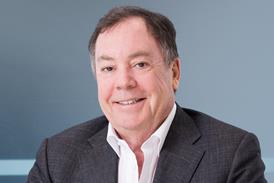




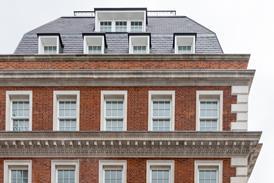
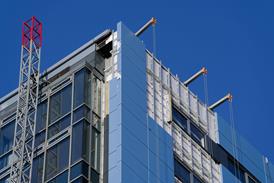







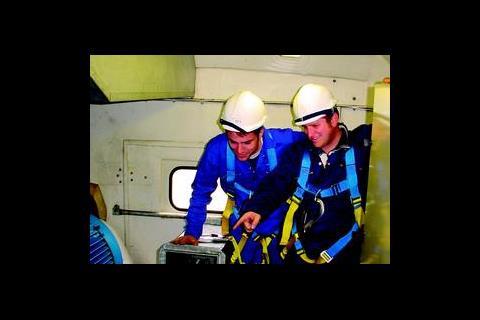
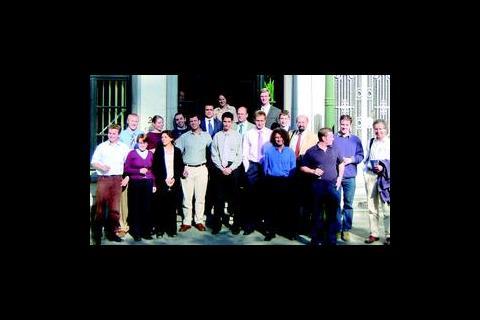

No comments yet